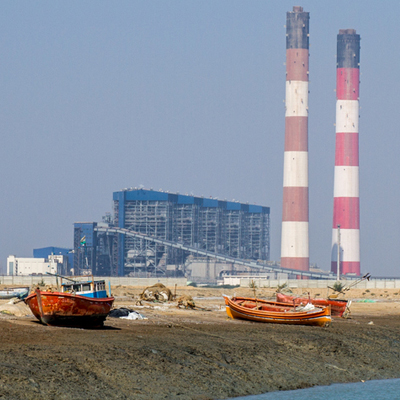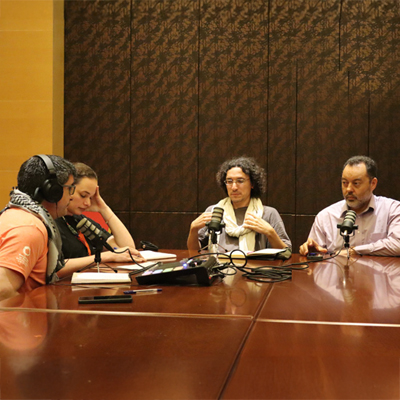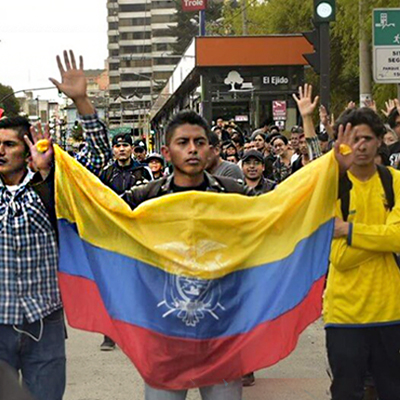Painful situation in Brumadinho
“Mining companies are not being controlled” denounces movement of affected people (MAB-Brazil)
 A victim of the environmental crime in Brumadinho after dam breakage in charge of Vale S.A. PH.: Brasil de Fato.
A victim of the environmental crime in Brumadinho after dam breakage in charge of Vale S.A. PH.: Brasil de Fato.
On January 24, Brazil suffered once again an environmental crime. In Brumadinho, a town in Minas Gerais state, a toxic waste reservoir of the mining company Vale burst and the mud covered the ground and people.
We have seen the pictures on social networks of how the mud swept Brumadinho. Two weeks later, the figures of this massacre are: 150 fatal victims, 134 bodies identified; 182 missing persons (among workers and residents of Brumadinho); 103 evicted; plus 387 firefighters and 12 helicopters that participated in the rescues, according to the Movement of People Affected by Dams (MAB, for its acronym in Portuguese).
Yara de Freitas, member of MAB, has followed closely the events and was interviewed by RWR to analyze what happened and give an update on the situation two weeks after this tragedy. “In Brazil there is no real control and monitoring on behalf of the State to the companies in charge of extractive projects,” she said, since no human or technical resources are allocated for that. In addition to companies presenting their own monitoring reports, without control of the State, slightly more than half (58%) have delivered these reports and only 3% have inspected the land where these projects are located.
Vale S.A. is the third largest mining company in the world and is present in 30 countries. Currently, it is in charge of 600 reservoirs in Brazil and at least 19 dams, such as Brumadinho, are at risk of breakage: 14 of these are also located in Minas Gerais.
Vale was founded in 1942 as Companhia Vale do Rio Doce, dealing with the extraction of iron, copper, nickel and gold; its profits used to go to the public treasury of the Federal Government of Brazil. Responsible for 80% of national iron exports, in 1997 it was privatized by former President Fernando Henrique Cardoso. The wave of privatizations in the 1990s imposed a transnational business logic that “prioritizes profits instead of investing in environmental and social security,” de Freitas said.
MAB carries out the social monitoring of these projects, together with the communities affected by the extractivism. This movement had already warned about what finally happened in Brumadinho, considering the antecedent of the Mariana dam in 2015.
How is the situation today?
Vale S.A. is exerting pressure to continue mining explorations in Brazil. Although the Labor Directorate of Brazil has declared its decision to block the company’s accounts to guarantee compensation and severance pays, there is still no agreed figure on how many millions of reais will be blocked.
At the socio-environmental level, de Freitas stressed that the toxic mud that overflowed when the dam of the mining waste broke advanced about 150 kilometers and could contaminate the San Francisco River and the communities surrounding that course.
“The people who were affected, who lost their families, are in constant distress and in a really painful situation because of what happened, and because of the lack of information they receive from the company and from the federal and state governments,” Yara said. Those who live and work in the rural area have lost all their production due to the lack of water, and because the mud covered and contaminated the land.
In recent hours, authorities have also warned of the health risks associated with the lack of water supply and the onset of diseases such as dengue and yellow fever; as well as mental health problems in the population, due to the anguish and pain experienced in the last 15 days.
De Freitas also highlighted the role of the Public Ministry Office in Brumadinho, which works to guarantee the rights of people affected by the lack of response from Vale S.A., while the Federal Police is carrying out the investigation into the breakdown of this reservoir.






